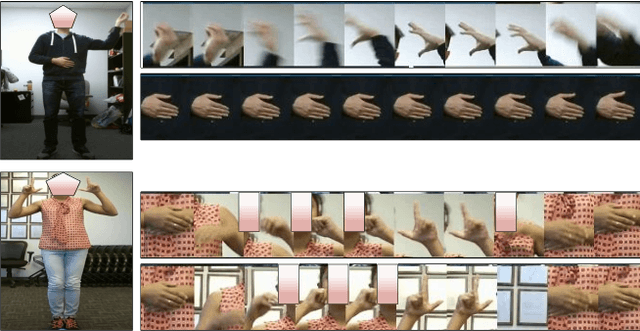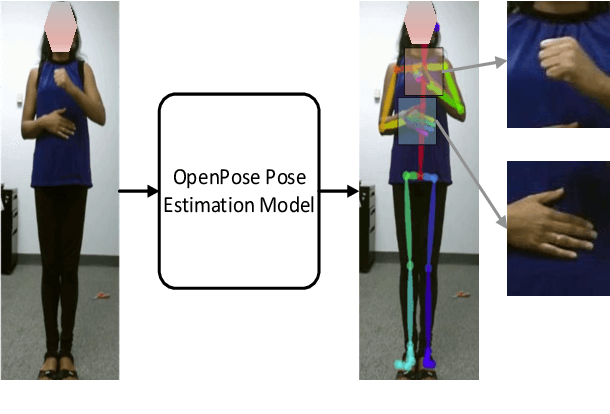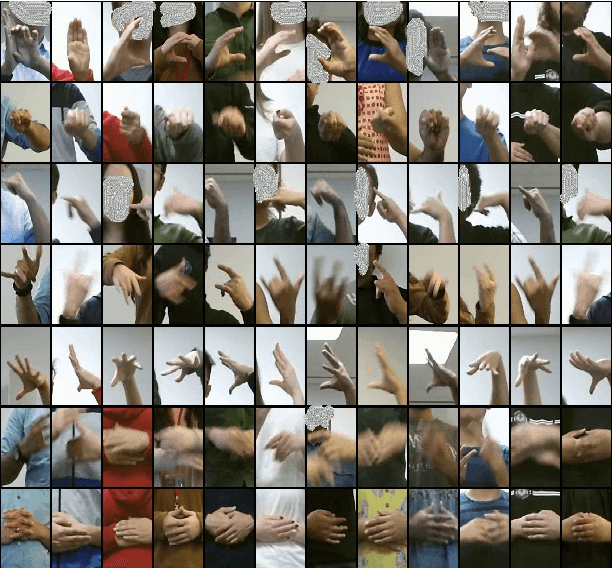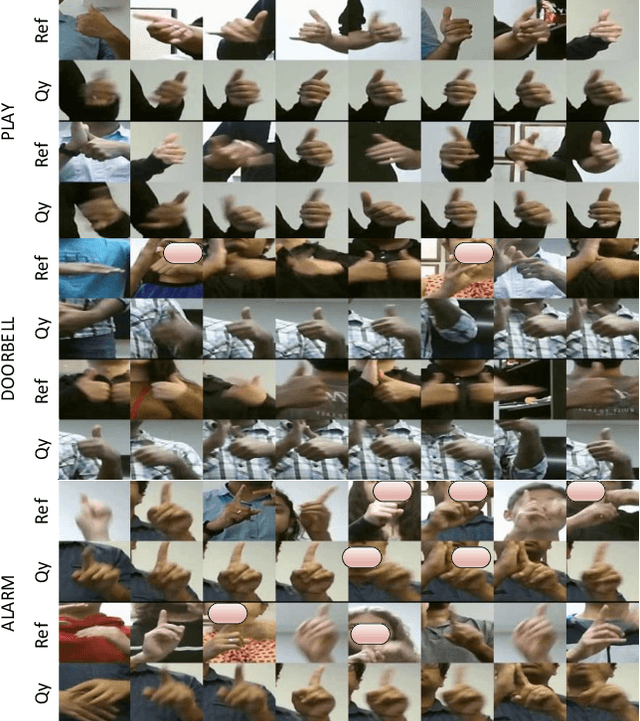FineHand: Learning Hand Shapes for American Sign Language Recognition
Paper and Code
Mar 04, 2020



American Sign Language recognition is a difficult gesture recognition problem, characterized by fast, highly articulate gestures. These are comprised of arm movements with different hand shapes, facial expression and head movements. Among these components, hand shape is the vital, often the most discriminative part of a gesture. In this work, we present an approach for effective learning of hand shape embeddings, which are discriminative for ASL gestures. For hand shape recognition our method uses a mix of manually labelled hand shapes and high confidence predictions to train deep convolutional neural network (CNN). The sequential gesture component is captured by recursive neural network (RNN) trained on the embeddings learned in the first stage. We will demonstrate that higher quality hand shape models can significantly improve the accuracy of final video gesture classification in challenging conditions with variety of speakers, different illumination and significant motion blurr. We compare our model to alternative approaches exploiting different modalities and representations of the data and show improved video gesture recognition accuracy on GMU-ASL51 benchmark dataset
 Add to Chrome
Add to Chrome Add to Firefox
Add to Firefox Add to Edge
Add to Edge